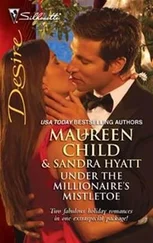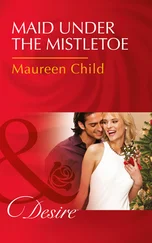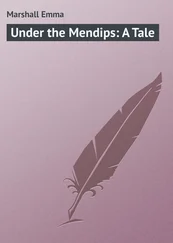First women, stiff and forbidding in their dark dresses and aprons, came to take her but she fought so fiercely, they sent for the men. Two big guards roughly subdued her and dragged her into the cell. They didn’t know, because she couldn’t tell them, why she struggled so desperately. Finally, they tied her into a chair and put a cloth tight about her mouth to silence the screaming. After a while the matron sent for Dolly. She was shamed into soothing her daughter, and although she managed to pinch her when the matron wasn’t looking, she did communicate to Lily that she wasn’t going to be tortured and hanged. Yet! That if she was very, very good and did everything she was told she would be let out. And just possibly, her mother, whom she had disgraced, would take her back.
These were the memories that Lily tried to keep away. Now, her mother was dead. It was her fault and if the men came again and the judge with his white hair, she would be forced back to that place and Dolly would not save her this time. She trembled and moaned as she wiped her eyes with her wet hands.
The waiter had knocked two or three times before Henry heard him.
“Your breakfast, sir.”
Henry looked at his watch, which he’d placed on the bedside table. It was almost noon. He had slept a deep, drugged sleep that left him feeling thick-tongued and sluggish. The waiter called again and he forced himself to sit up.
“Leave it outside,” he shouted with a rush of anger.
He wasn’t hungry, rarely was these days, just perpetually thirsty, his throat always burning. He reached over to light the lamp on the bedside table. He kept the curtains closed. He didn’t want the sunlight, didn’t want a reminder that life was going on outside his room, that people with futures to think of were walking on the street, talking, laughing with each other.
He got out of bed slowly and went over to the washstand. He tilted the mirror so he could get a better view, tugged off his blood-spotted nightshirt, and contemplated his naked body. For a long time now, this had become his morning ritual. It was foolish, morbid really, because what he saw was the inexorable progress of his disease. Abruptly he dropped to his knees and clasped his hands together in prayer. He went to church on a regular basis but it was perfunctory, polite behaviour and he knew it. However, this morning he longed to reach a God who had long seemed indifferent.
“Our Father which art in Heaven, forgive me for what I have done. I am a sinner. You have punished me, Lord, and I will try to accept Your punishment as it is just. I repent. You who see into my heart, forgive me I beg, but as it be Your will and not mine. Amen.”
He repeated the Lord’s Prayer over and over until finally his knees ached and he was forced to get to his feet. He had achieved no peace of mind. His prayers were barren.
The twelve jurors, together with family and friends eager to witness the proceedings, were jammed into the reception room of Humphrey’s. Only Tim Pritchard was impassive. He sat back, drawing on his pipe, ignoring everybody else and irritating the shirt off all of them by his air of superiority. He had served on a coroner’s jury last January when a prostitute had been found strangled on the frozen lake. He considered himself an old hand at the inquest business.
Murdoch was a bit late and he slipped into the back of the room. There were no more chairs to be had, so he stood and leaned against the wall. Crabtree was serving as constable of the court, and when he entered, like schoolchildren when the teacher comes in, the spectators fell silent immediately.
The constable went over to a lectern provided for the purpose, cleared his throat, and in a booming voice, made his announcement.
“Listen here, everybody. I have a message from the coroner, Mr. Johnson. To wit.” He unfolded a piece of paper and read.
“Gentlemen, the court doth dismiss you for this time but requires you severally to appear here again Friday, on the twenty-sixth day of July instant at the seventh hour of the clock in the evening precisely, upon pain of forty dollars a man on the condition contained in your recognizance entered into.”
There was a silence as the spectators tried to sort their way through the thicket of legal language.
“What’s all that mean, Constable?” called out Dick Meadows.
“It means the inquest is adjourned,” answered Pritchard, who was sitting in the row in front. A murmur of disappointment rippled through the crowd. “And if you don’t come back you have to cough up forty bills,” he added.
“Hey, sod that,” said a man in front who had the muscles and language of a labourer. “I’m off on a frigging run next Friday. I don’t do it, I don’t get no sodding wages.”
“Too bad. Then you’ll have to pay the forfeit.”
“Is that true, Constable?” the man asked.
“Yes, he’s right,” said Crabtree. “You’ll have to change your shift. You’ve been sworn. And you there. You watch your language or you’ll get a charge. There are ladies present.”
The man didn’t take the reprimand well. “Why’s the shicey thing being postponed?”
“Because Mr. Johnson has been taken poorly, that’s why. And you’re in the queen’s court, don’t forget. I don’t want to hear one more word out of your mouth. Of any kind.”
“If he leaves Dolly Shaw much longer she’ll be turning all of our stomachs,” called out another man.
“That’s no concern of yours. You’re here to do your duty no matter what.”
“And who’ll put bread in my kid’s stomach while her pa is adoing his duty? Will you?”
Crabtree bristled. “You’ve had your warning, Charles Piersol. One more word and you’ll be held in contempt. And that surely won’t feed your child.”
Piersol subsided with bad grace. Crabtree picked up a second sheet of paper from the table in front of him.
“Oyez, oyez. All manner of persons who have anything more to do with this court may depart home at this time and give their attendance here again on Friday next being the twenty-sixth day of July instant at the seventh hour of the clock in the evening precisely.”
The assembly began to stir, murmuring among themselves in disappointment.
“Come on then. No loitering. And don’t forget, any one of you not appearing will pay for it. Got that, Piersol?”
As they all began to disperse, Murdoch went over to Crabtree.
“What’s wrong with the coroner?”
“Poor man’s got the mumps. His valet came round just now. Said he looks like a chipmunk. Very painful.”
“It is. I had them when I was a lad. Anyway it’s just as well he postponed. I’m not getting too far with this investigation. Can’t find the daughter. She’s turned into a mermaid and is still swimming down to the lake. A bit more time will give me a chance to wrap this up.” Murdoch regarded his constable. “You still look queasy, George. How’re you feeling?”
“About the same to tell the truth, sir. Not myself at all. My belly’s cramping something fierce.”
“Got the trots?”
“No, sir.”
“I’ll ask my landlady what she recommends. She knows a lot about medicines.”
The big constable did not look well. His face was yellowish and his eyes were cloudy.
“Just try to stay out of Brackenreid’s way. You know how he is. He’ll be having you cupped and leeched before you can blink.”
Crabtree sighed. “I’m sorry this inquest was cancelled. It was giving me a chance to stay out of the station.”
Murdoch laughed and clapped him on the shoulder. “Cheer up. I’ll come back with something from Mrs. K. and you’ll be a new man.”
“I don’t know about new, sir. The old one’d do for me.”
Читать дальше











